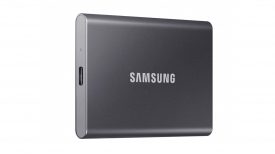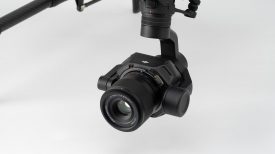By @Jonah_Kessel:
IBC 2013: BBC R&D — The Future is above 100 Frames Per Second from Dan Chung on Vimeo.
One of the more interesting halls at IBC this year was the “Future” hall where research and development peoples have a chance to show off their findings. Among them, the BBC R&D challenging the future of standard frame rates.
Frame and field rates have been largely standardized for the better part of the last 100 years. However, as our displays have grown, issues relating to motion portrayal have become more evident. Moving into a 4K environment, with 8K down the road, the BBC’s Manish Pindoria explains how faster frame rates will create a “more immersive” television experience, with less motion blur, less aliasing and more realistic images.
However, for televisions around the world to broadcast at over 100 fps, consumer and production technologies would have to be wiped clean. In this notion of the future, any camera not shooting 4K and at least 100 FPS would not be broadcast ready. At the same time, your grandmother who lives in the countryside with a square television, would also be out of luck (although, if you are a reader of this blog, it’s probably about time you went and picked up Granny a new 4K display, eh?).
On display at IBC were multiple televisions showing various frame rates: however, you won’t be able to see the difference, as our video above was only recorded at standard frame rates.
Check out this explanation from the BBC for more detail:
CORRECTIONS: A previous version of this article incorrectly stated that the BBC claimed the future of television is at 120 fps. The BBC’s R&D departement is still investigating higher frame rates across the range between 100 and 150 fps. In a note to Newsshooter.com, the BBC clarified “This is because, in a future production environment where HDTV at 50Hz coexists for many years with a transition to UHDTV at 120 fps, multiple conversions are inevitable, and would degrade the quality due to “judder” if it were used in European 50 Hz HDTV programmes and vice-versa. As a result, there is growing consensus that the European 50 Hz community needs a high frame rate standard based on a multiples of 50 fps.
Video shot and edited by Li-Lian Ahlskog, Jonah Kessel and Scott Karlins.









